“The risk-takers, the doers, the makers of things…” – in his inaugural address, President Obama emphasized the importance of “making” to society at large, something TED Fellows recognize and demonstrate in their everyday work across the globe. Here are just a few of the visionary makers among them.
PulkitGaur, TEDIndia Fellow, roboticist, and founder of Gridbots, says: “ALIAS [an autonomous robot with AI and vision] is a modular research robot I started making inspired by Mars rovers Spirit and Opportunity. I started working on this robot in my third year of engineering. I used indigenous designs and locally available materials.”
Moussa Keita, TEDGlobal 2007 Fellow, Geekcorps alumnus and founder of Zirasun, built and deployed CanTV which allows local radio stations to stream video content to the local community over WiFi. “One goal of the CanTV project is to make it possible to build CanTV receivers or TV ‘cantennas’ using locally available parts, with the exception of the $25 audio/video receiver, which we currently import from Canada. Also, the TV cantennas have been designed so that local technicians can quickly learn how to install them without special tools. The radio station already has access to television broadcasts via satellite, and a TV over wi-fi transmitter installed in August 2005.” Take a peek at the assembly of a CanTV here.
Ndubuisi Ekekwe, TED2010 Fellow and founder of Fasmicro, a microelectronics and embedded solutions provider, on why Africa needs an integrated circuits industry: “In a highly interconnected world, the number of technical knowledge workers in Africa will not grow without microelectronics programs that emphasize creating and disseminating knowledge. Without microelectronics, there is little homegrown information technology. Microelectronics makes communications products possible, from cell phones to computers.”
Benjamin Gulak, TED2010 Fellow and motorized-unicycle inventor, describes his sporty but environmentally friendly creation, the UNO: “It’s similar to the Segway in that it has a couple of gyros and neat electrical sensors. Its top speed is 15 mph, but right now it’s in the prototype stage. It’s all a matter of time and scale. It’ll go faster.”
Dominic Muren, a TEDGlobal 2010 Fellow and founder of Humblefacture (an organization exploring how to make small-scale, local, low infrastructure manufacturing that can still make complicated objects), asserts that modern manufacturing is broken, but that a new breed of makers, like early mammals, “are creating their own patterns and order within the ecosystem. They are redefining what it means to be a manufacturer, and what it means to be a user. And they are multiplying. These new makers are far from forming a unified bloc, and conflicts over turf, operational style, and mission are rampant. They run the gamut from dorm-room shops to 30-person operations in major cities. But they all have three things in common: They are small. They are flexible. And they know their users better than anybody.” Above is an image of Dominic’s watch, an example of modular design which allows for consistency across product lines without inventing an entirely new platform each line of products.
Marcin Jakubowski, TED 2011 Fellow, founded Open Source Ecology, is developing and testing the Global Village Construction Set, a set of tools to build replicable, open source, modern, off-grid resilient communities. “It is about ‘hacking society’ via permaculture principles,” he says. “We are proposing high-tech neosubsistence – the capacity to live from local resources by using advanced, appropriate technology, without requiring any compromise to quality of life.” Want to know more? Visit FactorEFarm, and watch his TED Talk here.
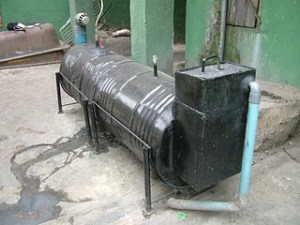
- A biogas generator. (Courtesy of the Bioapplications blog.)
OlatunbosunObayomi, TEDGlobal 2010 Fellow, an autodidact, is interested in using animal and organic waste as a feedstock for biogas systems. He is now setting his sights on closed-loop aquaculture systems for indigenous fish populations in West Africa.
Makers are just one group of innovators found among the TEDFellows. With 249 Fellows and counting around the globe, the Fellows program looks for innovators in all fields – music, science, art, academia, medicine, the NGO sector, and more. Applications for the next class of Fellows open Monday June 13, 2011. Visit www.ted.com/fellows/apply to apply online.
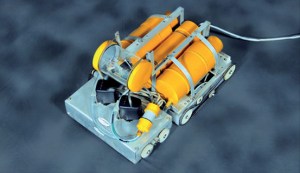
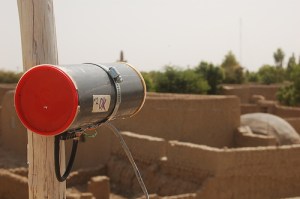
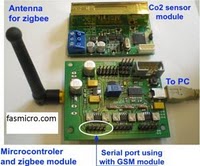
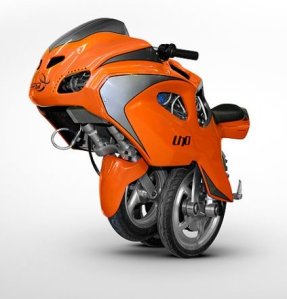
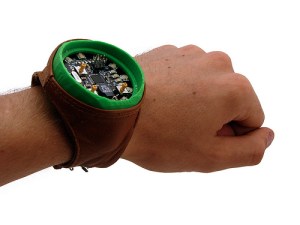
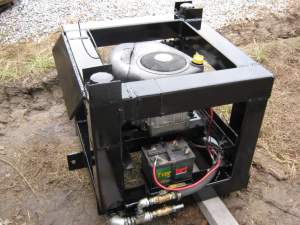
Comments (2)